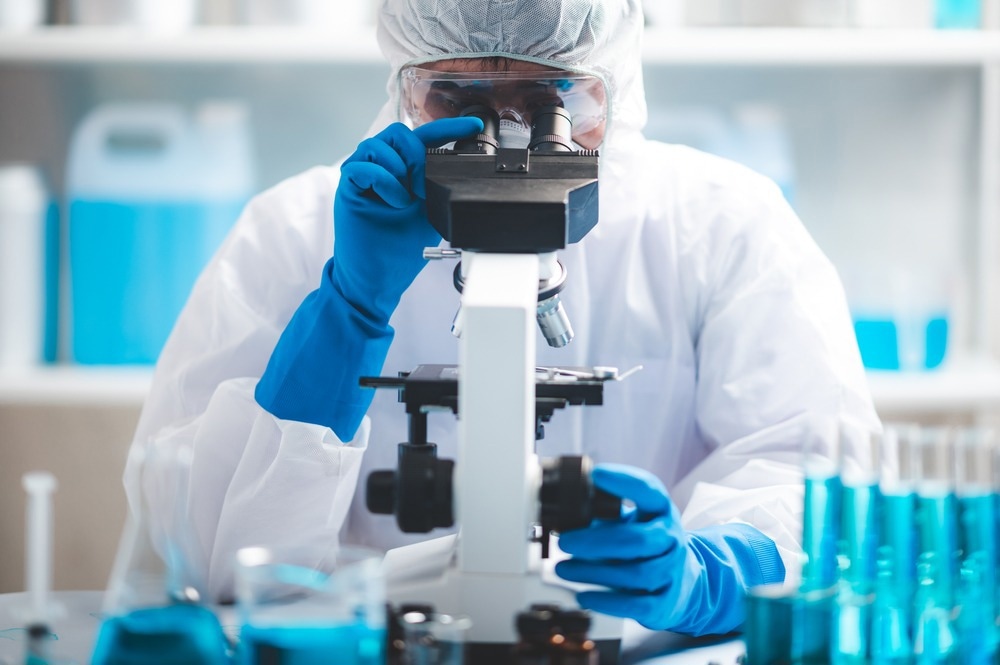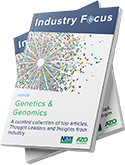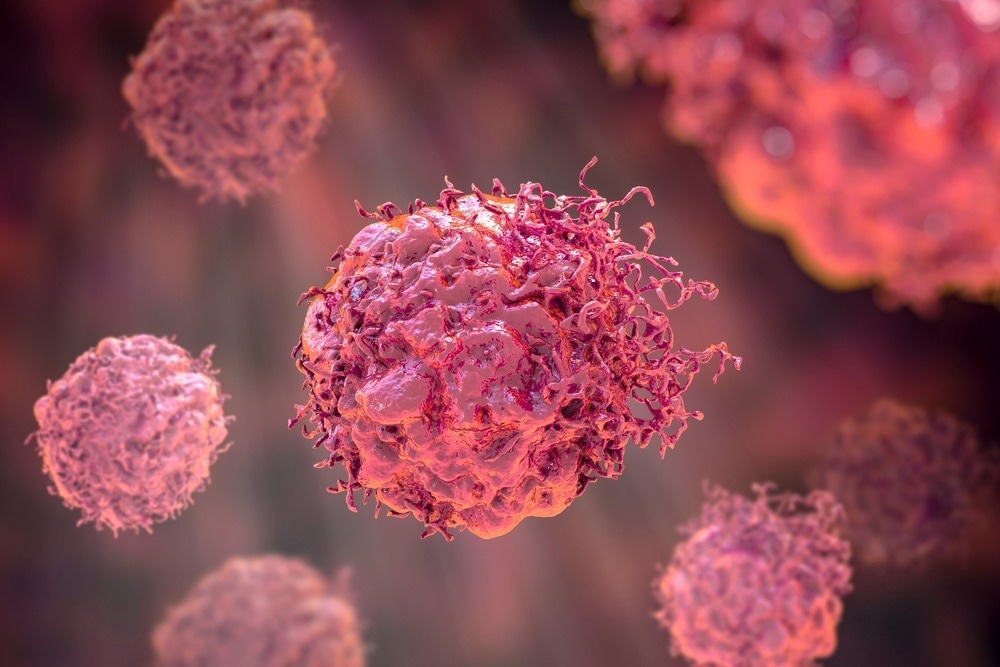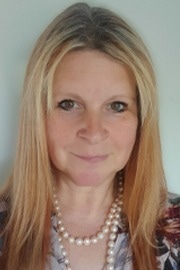 Dr. Rachel GrimleySenior Vice President of Drug DiscoveryCancer Research Horizons
Dr. Rachel GrimleySenior Vice President of Drug DiscoveryCancer Research HorizonsFollowing News-Medical's attendance to ELRIG 2022, we spoke with Cancer Research UK spin-out, Cancer Research Horizons, about their role in bringing treatment innovations to cancer patients.
Could you introduce yourself and your journey in this sector?
I, Rachel Grimley, have the privilege of serving as the Senior Vice President of Drug Discovery at Cancer Research Horizons. In my role, I oversee all aspects of drug discovery, from early ideas, target identification and validation all the way through to the different phases of drug discovery that move an asset toward becoming a successful clinical intervention.
My background is very much in the preclinical drug discovery space; I have spent 20 years in large pharma – all in the early R&D – but very much focused on generating a detailed understanding of our targets and their drug interactions. This effort was to understand how best to position these potential drugs in terms of dosing and particular disease positioning.
Prior to my career in industry, I undertook my degree and completed a Ph.D. in Biochemistry and Mechanistic Enzymology at The University of Birmingham before undertaking my postdoc at the University of Oxford, where I worked with the vaccinia virus.
What do you enjoy the most about working at Cancer Research Horizons?
For me, my move to Cancer Research Horizons was an important step as it offered an environment that was even closer to patients. Working here has opened my eyes to the wider areas of how to improve the quality of life for patients. Seeing all the pieces – the fundraising, the philanthropy, coupled with the academic interactions– really shows the power of having a large, but also very integrated, network dedicated to maximizing patient benefit.
What I have found unique about Cancer Research Horizons is our relationship with academic PI partners – they are involved in projects from the beginning and stay with those project teams going forward. So, we have the fantastic benefit of their fundamental research supporting the wider project team as we move toward drug therapy.

© Chokniti-Studio/Shutterstock.com
According to the World Health Organisation, cancer is the second leading cause of mortality worldwide, with roughly 9.6 million deaths due to one or more forms of the disease. In your opinion, how would you describe the current state of cancer drug discovery?
In the last few decades, we have made significant strides, but there is much more we can do: find more targeted treatments with less impactful side effects and address many of the cancers of unmet need, such as brain tumors and liver cancers.
We still do not understand these cancers well, so there must be an increased focus on investing in and collaborating on these areas across the industry – the more we know about these diseases, the better we can target them, and the kinder the treatments will be for patients.
We have seen massive steps taken to accelerate drug discovery. For example, the whole era of functional genomics and the leaps in the application of machine learning to aid disease targeting and wider drug discovery have helped us understand the causes, consequences and potential treatments of various cancers.
What are the major challenges that this cancer research faces?
Public spending and the general cost-of-living represent massive challenges for the charity sector and drug discovery projects funded by donations. When people’s budgets are limited, donating is understandably not always the first priority. In these times, we need to be mindful and try to mitigate the challenge to ensure our science does not suffer.
Another key area we need to improve on is early disease diagnosis. As with anything, early diagnosis provides the best chance for treatment or management. There is so much more we need to do to balance out what opportunities people have for early therapies as well as the range of treatments available to them.
However, this cannot be pursued in isolation. Early diagnosis must also consider and combat the huge inequalities existing globally across both diagnostic and cancer treatments, including those arising from ethnicity and socio-economic deprivation. CRUK and others are investing heavily to address this.
Cancer Research Horizons is a spin-out of Cancer Research UK (CRUK), a charity organization that raises money to support healthcare and research institutions. Why was Cancer Research Horizons created, and what are its primary aims?
Cancer Research Horizons is the innovation engine of Cancer Research UK – the world’s largest charitable funder of cancer research. We work closely with researchers, industry and investors to accelerate the discovery, development and commercialization of new therapeutics and diagnostics for patients.
Cancer Research Horizons was launched to bridge the gap between research and the market. To date, we have played an instrumental role in forming over 60 spin-out companies and bringing 11 new cancer drugs to market; borne out of our pioneering research, we want to go further and faster now.
By combining our six drug discovery sites, found in Glasgow, Newcastle, Cambridge and London, Cancer Research Horizons is uniting all CRUK-funded drug discovery into a single organization, bringing more than 200 scientists together under one leadership with a single portfolio and budget. As a result, we can prioritize the right drug targets together.
Our strong belief is that our organization will enable leaders from across the academic and commercial world to come together from the earliest stages of drug discovery. In doing so, we will be able to make better, more informed decisions on novel targets and move forward more rapidly with the most exciting ideas to achieve favorable patient outcomes.
By pooling our state-of-the-art capabilities across the cancer research pipeline, our new organization can provide end-to-end drug discovery, spanning basic biology research to early-phase clinical trial delivery via our close partnership with Cancer Research UK's Centre for Drug Development.
Cancer Research Horizons will be the focal point for engagement with the academic network, and for commercial partnering, with a focus on collaboration with leading researchers to identify and validate new drug targets and approaches that will change the cancer landscape.

© ideadesign/Shutterstock.com
Cancer Research Horizons has already helped bring 11 cancer drugs to market, with more in different phases of clinical trials. Why is it essential to support developments at all stages of the drug discovery sector, and how can this contribute to successful drug development?
The understanding of what the right targets are for specific cancers comes from early research. It is the fundamental basics that we need to support to find better, kinder and more differentiated ways to target tumors.
From there, those ideas and early science need to be enabled to find a drug against a particular, newly discovered target or pathway. Academics and other partners need to be able to translate their ideas through to something that will have a patient impact; that is where the drug discovery phases and clinical trials come in.
Our network provides us with access to a huge depth and breadth of knowledge and technologies spanning different trial centers and an array of academics that are focused on a range of specific cancers and their mechanisms. This enables us to be more precise and targeted and streamline research translation from the earliest idea to the patient, with support in that journey from different areas of expertise.
Cancer Research Horizons was set up to provide that helping hand to researchers, to guide them on that journey, with access to different relevant models and technologies, and with funding.
As well as supporting each stage of the drug discovery pipeline, you offer many collaboration routes for partners to encompass all those that could help to catalyze cancer innovation. Why should connections be built between researchers, industry professionals and investors, and what more could be done to encourage them?
Genetics & Genomics eBook

Not enough of the new discoveries cancer researchers make are being progressed towards new innovations for cancer patients; many promising innovations are perceived as too early for the industry or investors to engage with.
Our capabilities and collaborative ways of working enable us to bridge the gap. We will act as a conduit bringing academia together with industry and investors to accelerate research to the clinic.
However, we want to ensure we are also addressing cancers of high unmet need, translating the research targeting those types. These areas are often where the commercial reward may not be so attractive for mainstream Biopharma.
Pharma companies can wait for basic literature research to be more developed. We provide early backing to the research produced by ourselves and our partners, enabling these areas to be better understood to ultimately improve the likelihood of it being picked up by wider mainstream Biopharma.
Catalyzing relationships between industry, investors and academia is vital as you need the money to invest, particularly in the later stages. You also need creative, curious scientists at the very beginning to generate those ideas and to think outside the box.
Other than funding, we provide other opportunities such as secondments into and out of the organization, putting people in contact with each other across the network. Our Therapeutic Catalyst Award also helps to bring together researchers on joint projects.
Cancer Research Horizons is also focused on offering free-to-attend events, including the Innovation Summit, that aims to gather individuals from academia, industry and venture capitalist firms for face-to-face introductions.
Utilizing over £400 million of funding accumulated each year, Cancer Research Horizons works to support all areas of oncology, from investigations into molecules and biomarkers to medical devices. Could you discuss some of the successes from the company’s portfolio?
We have helped to launch 11 new products onto the market – six million doses of these medicines have been administered to cancer patients around the world. Some of our approved medicines include Zytiga (abiraterone) for prostate cancer and Zylonta (loncastuximab tesirine-lpyl) for relapsed or refractory diffuse large B-cell lymphoma.
Our portfolio companies include Kudos Pharmaceuticals Ltd, the inventor of olaparib (Lynparza), an inhibitor of a poly ADP ribose polymerase (PARP) enzyme, used by cancer cells to stay alive. We are pleased to see Olaparib going from strength to strength, with approvals awarded for eight cancer indications.
On average, we bring at least one drug candidate to the clinic annually.
Key to our success is our courage to embrace risk, invest in emerging areas and build science around that area. Our early investment was vital for our portfolio company, Artios, which has pioneered therapeutics targeting DNA repair mechanisms hijacked by cancer cells.
Our support for Artios, a biotech company founded by Niall Martin (who oversaw the Olaparib program at Kudos), has enabled the company to enter first-in-human trials with their compound ART4215. We hope that it will address the gaps in the current generation of PARP inhibitors
Recently, Cancer Research Horizons attended ELRIG Drug Discovery, Europe’s largest gathering of life sciences industry professionals. How can these events help shed light on the challenges and successes of the sector, and how can this inform the future movements of a company?
ELRIG Drug Discovery brings together all the main elements of drug discovery science, from large Pharma, individual researchers, and everything in between, and enables knowledge sharing.
It is easy to get entrenched in dogma working in one scientific niche, but ELRIG is not only oncology-focused; it covers a whole range of disease areas and fundamental drug discovery research.
It is at this interface that scientists can learn about new ideas and share with the wider community, but also think outside-the-box and network with a range of peers.
There are larger conferences like AACR, ASCO, which are very much focused on oncology and clinical aspects. Still, for early science, where early discoveries are made, conferences such as ELRIG Drug Discovery allow scientists to present their research – these are often showing hot topic areas across drug discovery– and Pharma companies often take note of these advances to draw ideas from. In this way, these conferences aid early discovery to move forward.
Likewise, for industry, gatherings like ELRIG Drug Discovery are a fantastic way of showcasing the advances they have made in the last two years post-COVID.

© Kateryna Kon/Shutterstock.com
How do you predict the future of oncology research to look? Are there any trends or innovations that you are monitoring?
The future is going, in part, to be more personalized, including novel ways of looking at precedented targets or directed combination therapies. More innovative approaches to prevention and early diagnosis will also be fundamental.
Furthermore, there is a dramatic increase in the development of new Artificial Intelligence and Machine Learning platforms to aid drug discovery – we are monitoring innovation in this area carefully.
We are looking to further explore and invest in areas including immunotherapy, protein homeostasis and DNA damage responses.
Importantly, we want to focus on areas of unmet need, such as liver and brain cancers (CRUK prioritized areas), where we can be incredibly impactful and encourage more inward investment by large pharma partners from the UK and globally.
We are also exploring new partnerships, looking to combine expertise to exploit some of the emerging therapies over and above traditional large and small molecule therapy.
What are the next steps for Cancer Research Horizons?
We are looking to invest earlier and into more novel science that traditional venture capitalist investors would not engage with. Our £30m Cancer Research Horizons Seed Fund has been set up to do just that, enabling us to move faster on emerging approaches, including cancers of unmet need, which the industry may not take on due to the financial risk.
Cancer Research Horizon also plans to ‘de-risk’ these conditions by providing a mix of Seed funding (Cancer Research Horizons Seed Fund), project funding (Cancer Research Horizons Therapeutic Catalyst Awards), and by giving access to our drug discovery capabilities. Unlike Biotech companies, we do not face the same shareholder pressure to focus on larger indications, short-term returns, or less risky targets, enabling us to take a chance on a broader range of drug modalities.
In terms of new modalities, we will further develop our small molecule and antibody capabilities and evaluate our scope to support the creation of next-generation therapies.
We plan to further establish ourselves as a key player in the industry in the UK and internationally. Our plans include expanding our network further globally, building greater links with academia in the US and areas of emerging scientific potential.
Another priority for us is combating cancer inequalities – the key to this is widening our network globally, both clinically and across academic centers.
Learn more about Cancer Research Horizons. |
See recent tweets from Cancer Research Horizons. |
Stay up to date with Cancer Research Horizons on LinkedIn. |
About Dr. Rachel Grimley
 Rachel is the Senior Vice President of Drug Discovery for Cancer Research Horizons. Rachel has over 20 years’ experience in preclinical drug discovery, incorporating target identification through to drug candidate nomination, across a number of companies. She has contributed to the discovery and characterization of numerous drug candidates, and 3 marketed medicines, across a diverse range of disease areas including oncology, neuroscience, respiratory, cardiovascular and anti-infectives.
Rachel is the Senior Vice President of Drug Discovery for Cancer Research Horizons. Rachel has over 20 years’ experience in preclinical drug discovery, incorporating target identification through to drug candidate nomination, across a number of companies. She has contributed to the discovery and characterization of numerous drug candidates, and 3 marketed medicines, across a diverse range of disease areas including oncology, neuroscience, respiratory, cardiovascular and anti-infectives.
Rachel is also an Expert-in-Residence at the University of Oxford.
Prior to joining Cancer Research Horizons in 2021, Rachel was Executive Director and Head of Mechanistic Biology & Profiling at AstraZeneca, with global responsibility for in vitro mechanism of action studies, SAR biology profiling, Wave1 DMPK and preclinical safety screening across the UK, US and Sweden. Previously, Rachel held roles of increasing responsibility at Pfizer in Sandwich, GlaxoSmithKline in Stevenage and Pfizer Neusentis in Cambridge.
Rachel gained her Ph.D. in Mechanistic Enzymology from the University of Birmingham and completed post-doctoral studies at the University of Oxford.
Posted in: Drug Discovery & Pharmaceuticals | Insights from Industry | Cell Biology
Tags: Antibody, Artificial Intelligence, Biochemistry, Brain, Cancer, Catalyst, Cell, Charity, Clinical Trial, Compound, Diagnostic, Diagnostics, DNA, DNA Damage, Drug Discovery, Drugs, Enzyme, Genomics, GlaxoSmithKline, Healthcare, Immunotherapy, in vitro, Liver, Lymphoma, Machine Learning, Medical Devices, Molecule, Mortality, Neuroscience, Oncology, pH, Pharmaceuticals, Polymerase, Preclinical, Prostate, Prostate Cancer, Protein, Research, Respiratory, Therapeutics, Translation, Vaccinia Virus, Virus

Written by
Megan Craig
Megan graduated from The University of Manchester with a B.Sc. in Genetics, and decided to pursue an M.Sc. in Science and Health Communication due to her passion for combining science with content creation. As part of her studies, Megan partnered with Jodrell Bank Discovery Centre as a Digital Marketing Assistant, producing content and updating sections of their website.In her spare time, she loves to travel, exploring each location's culture and history – including the local cuisine. Her other interests include embroidery, reading fiction, and practicing her Japanese language skills.
Source: Read Full Article
